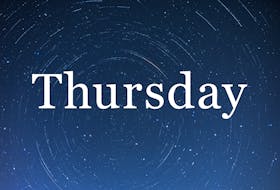When Canada’s chief medical officer, Dr. Theresa Tam, addressed the nation Thursday morning about the state of COVID-19 and our future prospects, she invoked two of the most famous lines in the history of English poetry.
In the face of what Prime Minister Trudeau described as “the challenge of a generation,” Tam revealed that COVID-19 could be on track to infect upwards of two million people over the coming months in Canada, and result in as many as 22,000 deaths in a worst-case scenario. She cautioned these outcomes come down to our social distancing efforts and continued lockdowns and other measures. “What we do together now will buy us more time to further understand the virus and develop treatments and vaccines,” she said. “We are the authors of our fate.”
It’s an emboldening sentiment at a time of serious alarm. We need to impress the importance of collective action and civic responsibility, and to emphasize in public messaging the impact our individual choices over the coming weeks will have on the severity of the consequences over the coming months.
But what’s most curious about Dr. Tam’s poetic invocation is that she got it wrong. William Ernest Henley never declared that he was the author of his fate. He favoured the more compelling word “master.” “I am the master of my fate,” he wrote in 1875, after a bout of emergency surgery that saved his leg from amputation. “I am the captain of my soul.”
This seems a bizarre revision, not least because Henley’s “Invictus” is among the best-known and most frequently cited poems ever composed. That final couplet, in particular, has achieved such currency that it’s part of the popular vernacular, famously adduced by Churchill in the House of Commons during a speech for rhetorical effect and, even more legendarily, read aloud by Nelson Mandela while incarcerated.
“Invictus” is the kind of beloved, accessible poem that routinely surfaces in network TV dramas and first-person shooter games, reverently referenced in everything from Casablanca to Call of Duty . Was this change an attempt to give the familiar lines a contemporary twist? Or was this a simple case of misquoting?
One can understand why “Invictus” endures as a staple of oratory, particularly among politicians and other public figures. Henley was celebrating fortitude and resolve before adversity, and it’s understandable that the government, obliged to deliver some grim news about the outlook for the future, would feel compelled to offer inspiration and reassurance.
On the other hand, there is something rather dispiriting about such a gaffe at a critical juncture. This is the moment we’re meant to be galvanized and buoyed, our national mettle invigorated as we face the crisis head-on. Bungling the invocation does not exactly inspire the sort of confidence that’s needed.
This is no time for mere authorship. We need mastery.
Copyright Postmedia Network Inc., 2020








